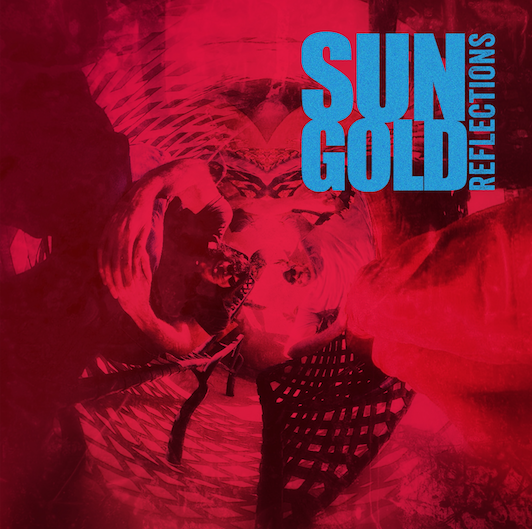 Like an endless day at the beach caught on an old Polaroid, colors faded but the memories vivid - that's the languid sound of Sun Gold. Take some of the biggest and baddest rock tunes of the Nineties - chestnuts by bands like Alice in Chains, Stone Temple Pilots, and the Foo Fighters - bleached, faded and aged by the sun and the years into dreamier, psychedelic-tinged folk-rock musical melancholia, all sepia-tones and de-saturated colors, high lonesome harmonies, steel-strings, harmonicas and mandolins and loping rhythms, the way the rapture and rush of youth is mellowed by memory into the calmer tides of the years to come.
Like an endless day at the beach caught on an old Polaroid, colors faded but the memories vivid - that's the languid sound of Sun Gold. Take some of the biggest and baddest rock tunes of the Nineties - chestnuts by bands like Alice in Chains, Stone Temple Pilots, and the Foo Fighters - bleached, faded and aged by the sun and the years into dreamier, psychedelic-tinged folk-rock musical melancholia, all sepia-tones and de-saturated colors, high lonesome harmonies, steel-strings, harmonicas and mandolins and loping rhythms, the way the rapture and rush of youth is mellowed by memory into the calmer tides of the years to come.
Coming of age in those now nostalgic Nineties, singer-songwriters Wes Hutchinson and Casey Shea have worked together since 2002, both leaving Nashville for New York. With a new band, dubbed, not accidentally, Sundown, an eventual major label deal gone awry that included being moved to London only fueled their friendship and further collaborations. Shea's songs, heard on television shows from One Tree Hill to Sleepy Hollow, have been described by MTV as "cursive on the head of a pin, beautiful, heartfelt and wrenching." Hutchinson, an equally prolific song-scribe and artist with two acclaimed albums and placements in Boston Public, MTV's The Real World, and many more, is also an in-demand sideman with buzz bands like The Candles and Alberta Cross.
Together again, the pair's long partnership yields the kind of brotherly and buoyant close harmony associated with the Byrds, Beach Boys, CSNY, and early-70s Pink Floyd. Witness their hypnotic reading of Alice in Chain's "Man in the Box," which, like their similarly poignant and touching covers of Smashing Pumpkins' "1979" or Morphine's "Cure for Pain," reveals layers of meaning, emotion and reflections that perhaps even the original songwriters did not anticipate. Sun Gold, then, is neither an homage nor a tribute album, but rather a kind of beautifully burnished distant echo, an elegant audio memory spiraling two decades into the future, that tells us as much about who we are now as it does who we imagine we were then.
James Rotondi (Spin, Rolling Stone, Guitar World, Mojo)
   
|